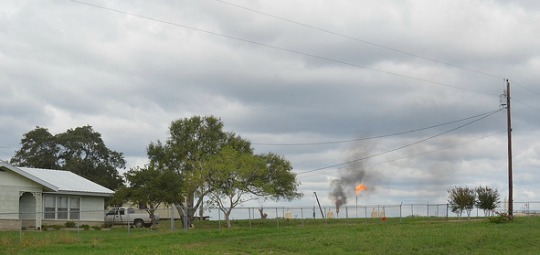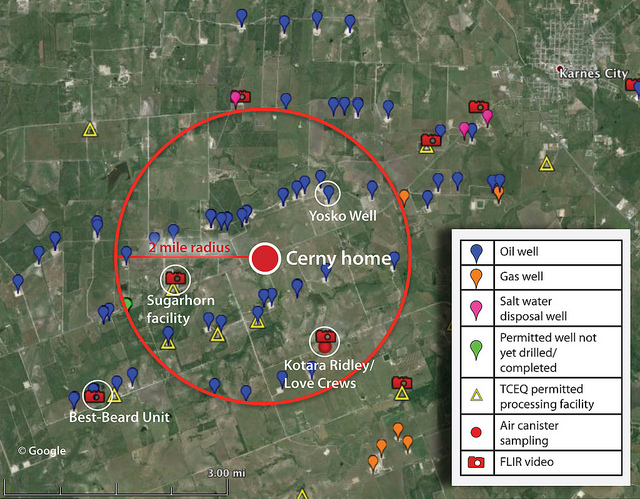http://www.commondreams.org/view/2014/02/26-7
Published on Wednesday, February 26, 2014 by The Guardian
by Natalie Hynde
Fracking protest at Balcombe, West Sussex. ‘Taking part in non-violent direct action will cause the investors to think twice.’ Photograph: Graham Turner for the Guardian. Getting arrested for taking part in direct action at Balcombe was the most liberating experience I’ve ever had. Nothing I’ve ever done in my life has made me feel so empowered and alive.
Anyone can Google the “List of the Harmed” or look at the Shalefield Stories detailing what’s happened to people in the US as a result of fracking – the nosebleeds, the cancers, the spontaneous abortions in livestock, the seizures and silicosis in the worker’s lungs. Not to mention the farming revenue lost from sick and dying cattle. When you have exhausted all other channels of democratic process – written letters, gone on marches and signed petitions – direct action seems the only way left to get your voice heard.
In the US, this industry has buried people’s stories and threatened their livelihoods if they dare to speak out. Researchers from the Colorado School of Public Health have found that a number of toxic, and carcinogenic, petroleum hydrocarbons in the air near fracking wells include benzene, ethylbenzene, toluene and xylene, which cause acute and chronic health problems for those living nearby.
In the UK we are told that it will bring energy prices down. Most people do not understand that the exploration wells that we are seeing at the moment are just the start. Unconventional gas will require tens of thousands of wells over huge areas of the country. Production will require pipelines, compressor stations and waste disposal on a massive scale. The tiny exploration companies will be replaced by massive firms when they sell the information and licences they have gathered.
Fracking releases methane into the Earth’s atmosphere which is a much more potent greenhouse gas, between 20 and 100 times more so, than CO2. This is a time when we should be meeting our climate change obligations, not worsening the situation by injecting a chemical cocktail of carcinogens into the earth’s crust.
A lot of us want the moratorium that was lifted in 2012 to be reinstated – due to new evidence and significant Royal Society/RIE recommendations not having been followed. We’ve already had two earthquakes in Blackpool and the property market in the town has tanked as a result of the fracking. In the exploratory drilling process, the range of chemicals, including hydrochloric acid, pose a massive threat if they escape from the well. All wells leak eventually – 6% of gas wells leak immediately and 50% of all gas wells leak within 15 years.
Following on from the Lock the Gate protest in Australia, communities are being inspired to spread information and prepare for when fracking is introduced to their area. Taking part in nonviolent direct action will cause the investors to think twice – we need more people to get involved, even at the risk of getting arrested.
Nothing is in place in the UK at the moment to deal with all the radioactive toxic waste water that we’re left with after the land has been fracked. In other words, they’ve said yes to fracking without having all of the necessary waste water treatment procedures in place. Some believe it won’t be possible to treat it at all, in which case they will end up dumping it in estuaries and elsewhere. Once that water is contaminated it can’t be reversed – it is in the water cycle forever.
Many people think UK shale gas would provide us with energy security, but what does that mean? People don’t realise the Chinese have already invested in iGas and Cuadrilla. The environment is not considered at all. Do we want to leave this mess for the next generation? Why hasn’t the public been informed of the risks? Why are they rushing it through? Why are they offering bribes to local communities? Why has France banned fracking? Why is the French company Total investing in fracking in the UK? Why is the French-owned EDF allowed to build nuclear power stations in the UK? We need an outright ban on fracking – or at the very least, a moratorium.

